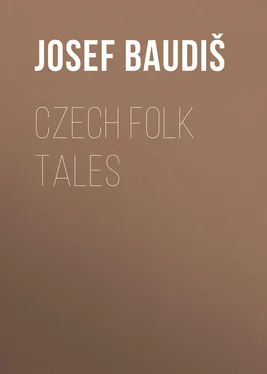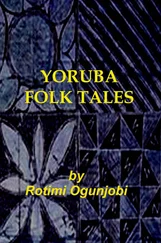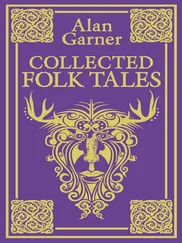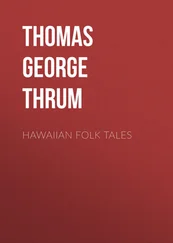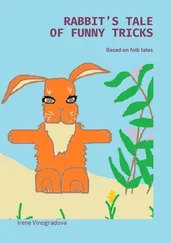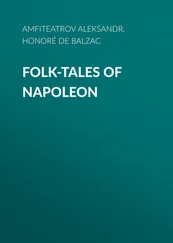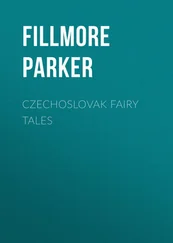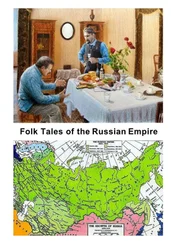Josef Baudiš - Czech Folk Tales
Здесь есть возможность читать онлайн «Josef Baudiš - Czech Folk Tales» — ознакомительный отрывок электронной книги совершенно бесплатно, а после прочтения отрывка купить полную версию. В некоторых случаях можно слушать аудио, скачать через торрент в формате fb2 и присутствует краткое содержание. Жанр: foreign_antique, foreign_prose, на английском языке. Описание произведения, (предисловие) а так же отзывы посетителей доступны на портале библиотеки ЛибКат.
- Название:Czech Folk Tales
- Автор:
- Жанр:
- Год:неизвестен
- ISBN:нет данных
- Рейтинг книги:3 / 5. Голосов: 1
-
Избранное:Добавить в избранное
- Отзывы:
-
Ваша оценка:
- 60
- 1
- 2
- 3
- 4
- 5
Czech Folk Tales: краткое содержание, описание и аннотация
Предлагаем к чтению аннотацию, описание, краткое содержание или предисловие (зависит от того, что написал сам автор книги «Czech Folk Tales»). Если вы не нашли необходимую информацию о книге — напишите в комментариях, мы постараемся отыскать её.
Czech Folk Tales — читать онлайн ознакомительный отрывок
Ниже представлен текст книги, разбитый по страницам. Система сохранения места последней прочитанной страницы, позволяет с удобством читать онлайн бесплатно книгу «Czech Folk Tales», без необходимости каждый раз заново искать на чём Вы остановились. Поставьте закладку, и сможете в любой момент перейти на страницу, на которой закончили чтение.
Интервал:
Закладка:
Josef Baudiš
Czech Folk Tales
PREFACE
The present collection has been selected from the following sources: —
Josef Kubín, Povídky kladské, i., ii. (in “Národopisný věstník českoslovanský”).
V. Vondrák, Několik pohádek z Dubu u Vodňan (S. Bohemia), in “Český Lid,” xiii.
V. Tille, Povídky sebrané na Valašsku (S. Moravia). “Národopisný sborník českoslovanský,” Svazek vii. Prague, 1901.
Elpl, Řada pohádek a pověstí nasbíraných v Líšni u Brna (Moravia).
B. M. Kulda, Moravské národní pohádky a pověsti, i. (Prague, 1874). From Moravia.
The first two stories (“Twelve Months,” “Víťazko”) have been retold by the novelist Božena Němcová (from the Slovak).
My translation could not be, of course, a literal one, because many phrases in the original might seem strange to the English reader’s ear.
Finally, I wish to express my thanks to Miss Eleanor Hull and Mr. Robin Flower for revising my English.
JOSEF BAUDIŠ. London, October 1917 .INTRODUCTION
The present collection is intended to exemplify the spirit of the Czech race. It may perhaps be objected that folk-tale themes are part of a common stock belonging to all European races, and even to many primitive peoples: but though this is perfectly true, it is also no less certain that the spirit of the nation manifests itself in the manner of their telling. The selection has been made from all sorts of folk tales, artistic and primitive alike; and yet two things are common to all of them: the moral tendency and a sense of humour. By this I do not mean morality in the vulgar sense of retribution for evil, or of filial devotion, or the sentimental insistence upon “every one living happily ever afterwards,” and above all upon Jack marrying his Molly. I mean that higher sort of morality which was the mainspring of Protestantism. It is often supposed that Protestantism is very unfavourable to the development and preservation of folk tales; but those of Bohemia are certainly an exception to this rule. The Czech nation was the first to adopt the Protestant faith, and even to-day is still Protestant at heart, though the Habsburgs forced it back into the Catholic fold.
The Czechs, then, have preserved their love for folk tales, adapting them to the higher morality and to the national sentiment, and discarding many of their supernatural features, or where the supernatural was allowed to remain for a moment, reverting very soon to the strict limits of probability. It is the very same method which, for example, Mr. Wells employs in some of his novels. That the Slav nations have a certain tendency to lay stress upon the ethical side in their folk tales has already been pointed out by the Czech poet Erben, whose tales have been translated into English in Wratislaw’s Collection.
As for their humour, the Czechs have a natural tendency to satire. The best works in Old Czech literature are satires, and in modern times one of the most brilliant of Czech politicians, Karel Havliček, was also the greatest Czech satirist. This spirit may also be seen in the present collection; but in every case the story-teller, instead of assuming the attitude of the morality preacher or of indulging in theatrical invective against the wickedness of the times, rests content with a good-humoured gibe at the folly of the world, at the frailty of his fellow-men, and, it may be, at his own.
These two traits are inherent in the nature of the Czech people; and those who know their love of such tales and of the literature which has grown out of them, can realize their search for a haven of refuge from the cruel present and their fond dream-pictures of a land where all was good, where at last everything was bound to end well, where truth and justice at last had conquered. Alas! to the victims of Habsburg rule and Austrian bayonets the bare possibility seemed utterly excluded. And yet why should they not dream of such a land? Amo quia absurdum! But at the very moment their humorous ego could not suppress a sneer. Yes, even in that wonderland which their fancy painted are foolish kings, ever prone to break their word: even there people are bad and stupid! But our tale says that the bad were vanquished and the foolish put to shame: let, then, the tale be told! And even as he tells it, his heart nurses the inward hope that the foreign tyrants who oppress him may one day be vanquished and annihilated.
That such were the wishes of the Czech people, the Great War has shown. They have proved by their deeds their love of freedom; and to-day Czechs are fighting bravely in every Allied army and in their own national units formed in Russia. May their Austrian oppressors be brought to the ground, and may Bohemia regain the freedom for which she has longed for three centuries!
THE TWELVE MONTHS
Once upon a time there lived a mother who had two daughters. One was her own child, the other her stepdaughter. She was very fond of her own daughter, but she would not so much as look at her stepdaughter. The only reason was that Maruša, the stepdaughter, was prettier than her own daughter, Holena. The gentle-hearted Maruša did not know how beautiful she was, and so she could never make out why her mother was so cross with her whenever she looked at her. She had to do all the housework, tidying up the cottage, cooking, washing, and sewing, and then she had to take the hay to the cow and look after her. She did all this work alone, while Holena spent the time adorning herself and lazing about. But Maruša liked work, for she was a patient girl, and when her mother scolded and rated her, she bore it like a lamb. It was no good, however, for they grew crueller and crueller every day, only because Maruša was growing prettier and Holena uglier every day.
At last the mother thought: “Why should I keep a pretty stepdaughter in my house? When the lads come courting here, they will fall in love with Maruša and they won’t look at Holena.”
From that moment the stepmother and her daughter were constantly scheming how to get rid of poor Maruša. They starved her and they beat her. But she bore it all, and in spite of all she kept on growing prettier every day. They invented torments that the cruellest of men would never have thought of.
One day – it was in the middle of January – Holena felt a longing for the scent of violets.
“Go, Maruša, and get me some violets from the forest; I want to wear them at my waist and to smell them,” she said to her sister.
“Great heavens! sister. What a strange notion! Who ever heard of violets growing under the snow?” said poor Maruša.
“You wretched tatterdemalion! how dare you argue when I tell you to do something? Off you go at once, and if you don’t bring me violets from the forest I’ll kill you!” said Holena threateningly.
The stepmother caught hold of Maruša, turned her out of the door, and slammed it to after her. She went into the forest weeping bitterly. The snow lay deep, and there wasn’t a human footprint to be seen. Maruša wandered about for a long time, tortured by hunger and trembling with cold. She begged God to take her from the world.
At last she saw a light in the distance. She went towards the glow, and came at last to the top of a mountain. A big fire was burning there, and round the fire were twelve stones with twelve men sitting on them. Three of them had snow-white beards, three were not so old, and three were still younger. The three youngest were the handsomest of them all. They were not speaking, but all sitting silent. These twelve men were the twelve months. Great January sat highest of all; his hair and beard were as white as snow, and in his hand he held a club.
Читать дальшеИнтервал:
Закладка:
Похожие книги на «Czech Folk Tales»
Представляем Вашему вниманию похожие книги на «Czech Folk Tales» списком для выбора. Мы отобрали схожую по названию и смыслу литературу в надежде предоставить читателям больше вариантов отыскать новые, интересные, ещё непрочитанные произведения.
Обсуждение, отзывы о книге «Czech Folk Tales» и просто собственные мнения читателей. Оставьте ваши комментарии, напишите, что Вы думаете о произведении, его смысле или главных героях. Укажите что конкретно понравилось, а что нет, и почему Вы так считаете.
